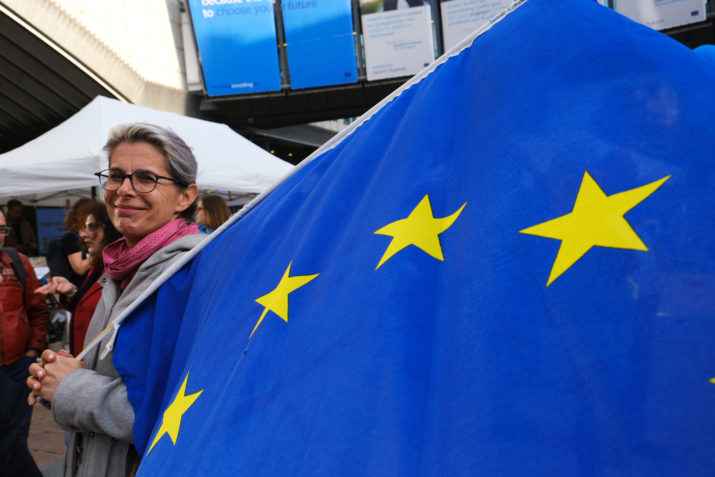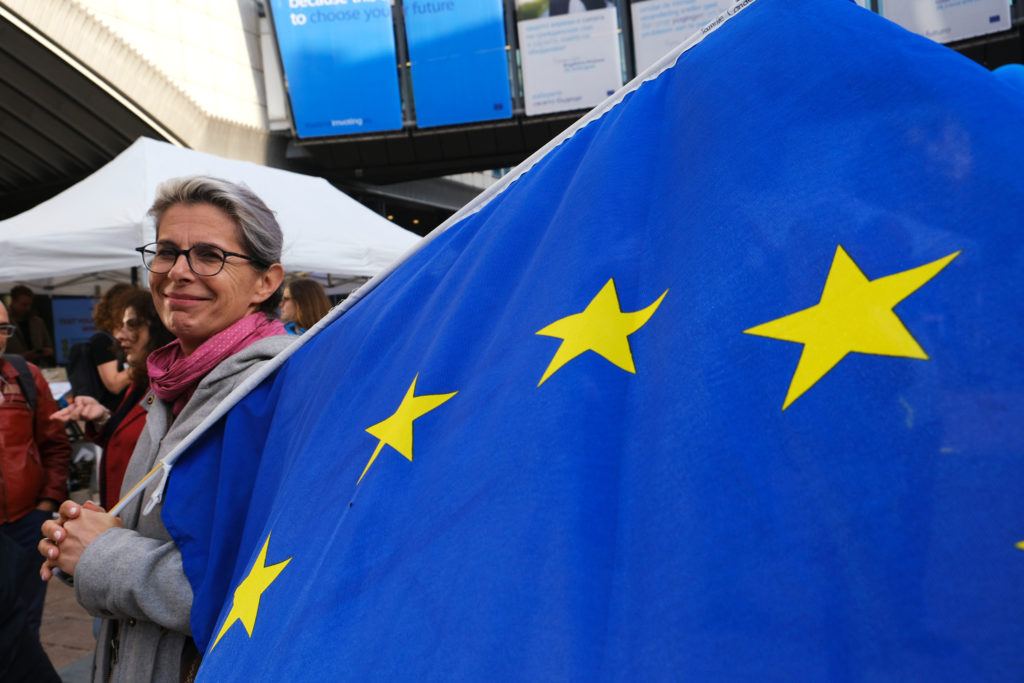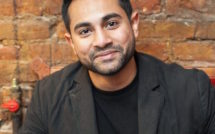

In the years ahead, the European Union faces a number of vital challenges, and many of those lie beyond its external borders. Swift and decisive action is required in the fight against global warming, promoting stability and the liberal order, facilitating sustainable development, managing transnational migration, defending human rights and democratic values, as well as contributing to international security and crisis management. To deliver on these issues, the EU needs functioning institutions, capable to act and to cooperate among them as well as with Europe’s partners worldwide. The role of the European Parliament (EP) is central in this effort. After the vote-cast on May 23-27, 2019, a first assessment of the assembly’s re-composition produces an ambivalent picture.
On the positive side, there has been enormous media interest and high voter turnout in what are the world’s second biggest democratic elections (after the recent polls in India) and the single most important transnational democratic exercise. The highest participation rate in EU elections since 1994 (in the then 12 member states) clearly indicates the growing importance of the EP, as well as an increased politicization of decision-making at the EU-level. Progressive parties, most notably the Greens (67 MEPs), but also the new alliance of Liberals/Centrists (ALDE/R, 109 MEPs), could increase their vote-pool and are now in a key position when it comes to building majorities. Their influence will be critical, in particular for the formulation of policies that put sustainability and green growth front and center.
What is worrying is that Eurosceptics and populists attracted greater numbers of voters in several countries; most notably in France, Italy, Hungary, and Poland. The German AfD made double digits and did particularly well in the country’s East. And, despite a scandalous video involving leaders from the Austrian extreme right in, to put it mildly, a compromising situation (“Ibizagate,” causing the fall of the federal government), the FPÖ fared much better than expected (17.1 percent). However, looking across the continent, it would seem that the danger of a shift to the far right was over-hyped by European and international media.
Steering the EU through troubled waters
Social democrats performed well in Spain, the Netherlands, Belgium, and Malta. Nevertheless, S&D Spitzenkandidat Frans Timmermans was right to call on social democrats to “remain humble” in light of the overall erosion of trust in his party group. At the same time, Timmermans is probably the most profiled politician at the European level today, while the Conservative’s Manfred Weber is contested in his own party group, not least because of his tactical support for Hungary’s Victor Orban. Orban’s illiberal Fidesz party has a tight grip on media, and the campaign as well as the way earlier elections were carried out in Hungary bordered on systematic manipulation. No wonder that Fidesz could harvest more than 50 percent of the vote. The more interesting question is whether Orban wants to remain in the European People’s Party-group (EPP) or whether he sees an advantage in joining the right-leaning “Europe of nations and freedoms” alliance.
Similarly, it is not surprising that in light of the epic Brexit disaster that forced Prime Minister May to finally step down, that “leave voters” punished the government and massively joined the ranks of Nigel Farage’s new anti-EU camp (31.6 percent). In parallel, given the comeback of the LibDems (20.3 percent) and Greens (12.1 percent) at the expense of the main opposition Labour party, the polarization between pro and contra Brexit is striking. Britain used to be a driving force in the promotion of global development and an important source of influence in the world. Its departure will, no doubt, be a loss especially for the EU’s international clout and capacity for action in foreign and development policy.
Also, in France and Italy, a surge of the right wing driven respectively by Marine Le Pen’s Rassemblement National (RN) and Matteo Salvini’s Lega, had been predicted. Yet, the dimension of their success is alarming: RN again came in first, and, as in 2014, ahead of the President’s party Renaissance/La République en Marche (LREM). This could severely hamper Emmanuel Macron’s ambitions for reforming the EU. In Italy, Lega scored a landslide victory with a third of the people’s vote. However, the populist right is not unified by a joint project, and their anti-immigration and anti-EU stance are more or less the only points they have in common. This does not add up to a political program, and a hostile take-over of Europe by the extreme right is nowhere in sight.
Setting the European agenda for a sustainable future
Whether we see a shift away from populism or whether the far right manages to set the agenda will depend on the ability of the political mainstream, together with progressive moderates to present a credible agenda for the future. This needs to convincingly combine inclusive social policy and sustainable growth, especially for the younger European citizens mobilized by Fridays for Future and the unfolding planetary emergency.
The fight against climate change is referred to in the programs of all the moderate party groups, however, with varying levels of priority. The most credible approach is spearheaded by the Greens, namely a European climate law putting a price on CO2. The Socialists and Democrats (S&D) propose a Sustainable Development Pact, and Renaissance/LREM, partnering with ALDE (now ALDE/R), advocates a European Climate Bank.
The way in which majorities are actually formed in the European Parliament is important if policies are to change and be implemented. Alliances in the EP change on an issue-by-issue basis; for some decisions, we see broad centrist coalitions, while on other occasions we see the left-wing forces fighting the right-wing forces. Together EPP, S&D and the Greens now have 393 mandates, more than the 376 mandates required to build a majority (even more so for EPP, S&D and ALDE/R), which gives rise to hope that the right course will be set on the most important issues.
One thing is clear: regardless of the combination of political forces involved, majorities will be smaller and less stable, with a few deviating votes making the difference on key matters. For this reason, stakeholders want to know concretely who will support various policy issues and who will oppose them, or who will push a specific piece of legislation in one direction or another. The composition of key committees, for budget, external relations and development, is another crucial question.
The first priority for the new Parliament is to negotiate and adopt the next Multi-Annual Financial Framework for 2021-27. Conflicts over distribution of resources, notably agriculture subsidies and finance from the EU structural funds will dominate. The fear is that too little attention will be paid to crucial future issues, such as building resilient societies, the sustainable development goals and the EU’s foreign and development policy. This may turn into a boomerang, as these global challenges are mounting and time to act is in short supply.
Dr. Thomas Henökl works as Associate Professor of Public Policy at the University of Agder (Norway), and Senior Research Associate at the German Development Institute in Bonn. His interests lie in the fields of European politics, public administration, EU foreign and security policy, international cooperation and development, and more widely on comparative politics and organization theory. Previously, Thomas Henökl worked for the European Commission, DG Relex (from 2011 the European External Action Service), and at the European Institute of Public Administration (EIPA). Thomas has a PhD in Political Science from the University of Agder (Norway), as well as three Masters’ degrees in Political Science, European Public Policy, and Public Administration from the University of Innsbruck (Austria), the Institut d’Etudes Politiques (Sciences-po), Paris, and the Graduate School of Public Administration at the International Christian University, Tokyo.
Photo: Brussels, Belgium. 26th May 2019. A woman holds an EU flag outside of the European Parliament | Shutterstock
Published on May 29, 2019.




